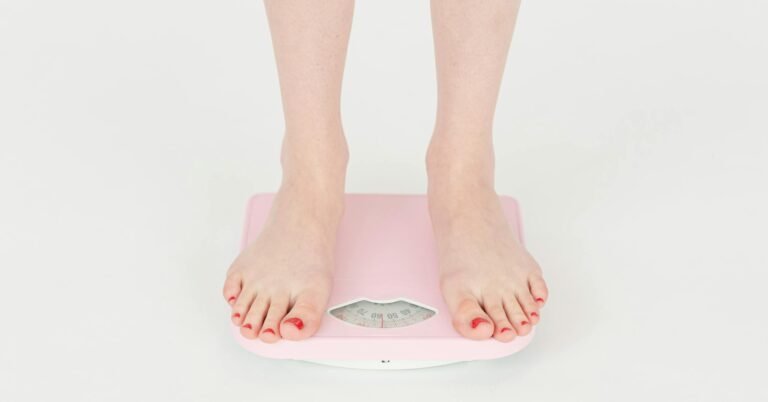We all know how it feels to wake up tired, groggy and longing for a few more minutes of sleep. Before long, we find ourselves reaching for our third cup of coffee just to keep us going through the afternoon. In our fast-paced world where we glorify and romanticize “the grind”, how much we work, and how little we sleep, sleep takes a backseat and we forget the most important thing: sleep is a necessity, not a luxury.

It’s time to wake up to the life-changing impact that sufficient sleep can have, so let’s talk about why quality shut-eye matters, and look at a number of ways to improve your sleep quality.
Why Sleep Matters and How It Affects Us
We aren’t so different from our beloved smartphones. Did you know that if your phone battery is low, say around 20%, it can’t actually run it’s processor at its full, designed capacity? That’s because the maximum current that the battery can output at that capacity is limited, and our brains work much the same way. Imagine you woke up with your battery at 20%, you realized you had a busy day ahead of you, and you couldn’t “charge” during your day! Scary thought, right? The consequences of insufficient or poor quality sleep go well beyond just feeling exhausted and overwhelmed.

Cognitive Acuity
In a way, this goes without saying, but if you’ve ever been puzzling over a complex problem or trying to be analytical and decisive on little sleep, you probably know that it feels like trying to run a marathon in flip-flops. Quality sleep does a lot for our brains, from enhancing and consolidating memory, to boosting creativity and mental agility for superior problem-solving skills and analytical abilities. A little sleep does more for your brain than several cups of coffee ever could, and that is not an understatement.
Stress Management
I don’t know about you, but there have been times I’ve noticed I was having a really bad day but didn’t really mind as much, mainly because I slept really well the night before. And there have also been days that have been perfectly fine, but those days felt like a drag from morning to night, because I wasn’t well-rested.
The mood-boosting and stress-busting effects of sleep simply cannot be overlooked. It’s a feedback loop in a way, because little sleep leads to a greater accumulation of stress, which increases cortisol levels (stress hormone), which then further impedes sleep. Anything you can do to moderate your stress levels will help you sleep better, which will be beneficial for virtually everything else.
The Fountain of Youth
Sleep is when our body repairs itself in many ways. Growth hormone is released primarily when we sleep, which has a number of benefits for our body.
Muscle and Tissue Repair
If you go to the gym or take your fitness seriously, sleep could not be more important. Did you know that in many cases, simply consistently getting 8 hours of sleep and spending less time in the gym can actually get you more gains than sleeping 7 hours and training really, really hard?
Yes, you read that right. Even if you don’t weight-train, this should underscore just how critical sleep is for recovery. The growth hormone that is released during sleep helps our body strengthen its bones, repair muscle, skin and connective tissue, heal injuries, improve mental acuity during the day and work wonders to keep our metabolism functioning optimally.
Related: Building Muscle: 8 Evidence-Based Benefits
Immune Health
Think of sleep as your body’s personal bodyguard. It strengthens your immune system, helping you fight off everything from the common cold to more serious health issues. Fun fact: whether you’re pro- or anti-vax, when the Covid-19 vaccines were being tested, sleep came out as one of most significant predictors in how strongly the immune systems of those who were vaccinated responded to the vaccine!
Weight Management
Poor sleep disrupts hormones that regulate hunger (ghrelin), fullness (leptin) and your fight-or-flight response (cortisol), potentially leading to overeating and weight gain. Cortisol is often what wakes you up early in the morning, even though you haven’t slept enough, but you feel awake and unable to fall asleep again. Chronically elevated cortisol levels have further negative implications for your health, such as fat redistribution to the abdominal area (more belly fat), increased appetite, slowed metabolism and reduced insulin sensitivity. Getting quality sleep is one of the most underrated techniques to help keep that extra weight off.
Related: 6 Ways to Lose Weight Without Counting Calories
Your Sleep Transformation: From Tired to Wired
Now that you’re convinced of sleep’s superpowers, let’s dive into how you can radically improve your sleep quality.

Here’s your actionable guide to becoming a sleep superhero:
- Establish a Consistent Schedule
Your body clock loves routine. Do your best to go to sleep everyday at the same, or very similar time. This includes weekends. If you build this habit, you will find that your body is automatically more ready and willing to fall asleep when it’s bedtime, and this should help improve your sleep quality. Feel free to make use of wearables to monitor your sleep/wake patterns to find your optimal bedtime.
- Build a Pre-Bedtime Ritual
The purpose of this is to unwind and get your body and mind relaxed and ready for sleep. This can include reading a book, taking a warm bath, doing a little gentle yoga, meditating, or drinking a warm cup of chamomile tea. As with most things, consistency is key. Making this a habit will form the neural pathways in your brain which will associate these activities with sleep.
- Moderate Your Caffeine Intake
Love your coffee? No problem, but timing is everything. Aim to cut off caffeine intake by 2 PM to prevent it from interfering with your sleep later.
- Stress Less for Better Rest
Easier said than done, right? Try incorporating stress-management techniques into your daily routine. This could be journaling before bed to offload worries, practicing gratitude, or even laughing (yes, laughter really is good medicine!).
- Supplement Smartly (If Needed)
Always consult with a healthcare professional before starting any supplement regimen. That said, it’s estimated that a huge proportion of North Americans are deficient in magnesium, and while magnesium won’t make you fall asleep, if you are indeed deficient, supplementing or improving your diet to mitigate this deficiency may help. Just as with magnesium, if you are indeed Vitamin D deficient, supplementing can potentially improve your sleep quality.
- Create a Sleep Sanctuary
Your bedroom should be a haven for sleep. Aim for these conditions:
- Cool temperature (around 65°F or 18°C)
- As dark as possible (invest in blackout curtains if needed)
- Quiet (use a white noise machine if outside noise is an issue)
- Time Your Workouts
Exercise is great for sleep, but not too close to bedtime. Finish any intense workouts at least 3 hours before hitting the hay, preferably even more. If you need to move in the evening, opt for gentle stretching or yoga and nothing that will really get your heart rate up and your metabolism firing.
- Phones Off!
The blue light emitted by phones, tablets, and computers can interfere with your body’s production of melatonin, the sleep hormone. Try to power down devices at least an hour before bed. If you must use them, set your phone to add a heavy red filter close to bedtime.

- Watch What (and When) You Eat
Heavy meals too close to bedtime can potentially disrupt sleep. Avoid eating 2-3 hours before bed if you can. If you need a snack, opt for something light and sleep-promoting, like a small banana with almond butter or a glass of warm milk.
- Watch Your Sleeping Position
Your sleep position can affect your quality of rest. Experiment to find what works best for you, whether it’s side sleeping with a pillow between your knees which can help align your spine, or back sleeping with a small pillow under your knees to relieve pressure on your lower back.
- Optimize Your Sleep Gear
Think about investing in a quality mattress, pillows, and bedding the same way that you would invest in a good computer, mouse, ergonomic office chair and external display – after all, you do spend about two-thirds of your entire life between work and sleep, and quality sleep unquestionably enhances productivity. It’s not a luxury, it’s a necessity. The right mattress and pillow can alleviate pain and improve your sleep quality dramatically.
- Embrace the Power of Scent
Try a few drops of essential oils (like lavender) on your pillow, or use a diffuser in your bedroom to benefit from the calming effect these scents can have.
- Stay Hydrated (But Not Too Close to Bedtime)
Proper hydration is crucial for good sleep, but chugging water right before bed can lead to late-night bathroom trips which can potentially disrupt sleep. Taper off your fluid intake a couple of hours before bed.
- Grab a Cat Nap
There’s nothing like an afternoon nap. There’s been a lot of research showing the benefits of taking 20-30 minutes in the afternoon. If this works for you and you can fit it into your routine, this can be a much more effective way of refreshing yourself rather than knocking back a couple more coffees to beat the afternoon slump.
- Handle Snoring
Snoring is more than just annoying. It can also be a sign of sleep apnea, or indicate worsening physical health. If you (or your partner) snores heavily, consider discussing this with your doctor.
- Add Sleep-Inducing Foods Into the Mix
Some foods contain natural sleep-inducing compounds. Try incorporating foods rich in tryptophan (turkey, eggs, cheese), magnesium (leafy greens, nuts), or melatonin (tart cherries, walnuts) into your evening meal.
- Try Progressive Muscle Relaxation
This technique involves tensing and then relaxing different muscle groups in your body, often just before sleep. It can help release residual physical tension from the day and help naturally lull you to sleep.
- Write in a Sleep Diary
Track your sleep habits, including bedtime, disturbances, wake time, and water and food consumption for a couple of weeks. This can potentially help you identify patterns or habits that could be negatively affecting your sleep.
- Practice Patience and Consistency
Building and changing habits always takes time and a little effort. Trust me, the payoff is most certainly worth the effort, and your body and brain will certainly thank you for it!
Conclusion: Improve Your Sleep Quality to Improve Your Life Quality
We have to change the prevailing notion that quality sleep is a luxury, while in reality, it’s the cornerstone of good health. By implementing at least some of these strategies, you’re improving nearly every aspect of your life, from your mood, productivity and stress levels during the day, your body’s ability to recover at night, your mental acuity, your metabolism, how your skin ages, your body’s ability to fight infection and so much more.

Everyone’s sleep works a little differently. What works for you might not work for someone else. The key is to experiment, find what really does work best for you, and make quality sleep a non-negotiable part of your life. If you want to learn more about how to improve your sleep quality, check out some of MIT’s helpful resources here. Let’s start normalizing quality sleep rather than glorifying how little of it we really get!
So tonight, when your head hits your pillow, remember: you’re not just “going to sleep” – you’re genuinely investing in a healthier, happier, more productive you. Sweet dreams!
Frequently Asked Questions
Q1: How many hours of sleep do I really need?
A: While individual needs vary, most adults require 7-9 hours of sleep per night. Some people may function well on slightly less, while others might need more. The key is to wake up feeling refreshed and alert.
Q2: Is it better to sleep in on weekends to catch up on lost sleep?
A: While it’s tempting to “catch up” on sleep during weekends, drastically changing your sleep schedule can disrupt your body’s internal clock. It’s better to maintain a consistent sleep schedule throughout the week.
Q3: Can I train myself to need less sleep?
A: No, you can’t train yourself to need less sleep. Your sleep needs are largely determined by genetics and age. Consistently getting less sleep than you need can lead to chronic sleep deprivation.
Q4: Is napping good or bad for nighttime sleep?
A: Short naps (20-30 minutes) early in the day can be beneficial without disrupting nighttime sleep. However, long naps or napping late in the day can interfere with your ability to fall asleep at night.
Q5: What’s the best position to sleep in?
A: The best sleep position is the one that’s most comfortable for you and allows you to wake up pain-free. However, sleeping on your back or side is generally recommended over stomach sleeping, which can strain your neck and lower back.
Q6: What should I do if I wake up in the middle of the night and can’t fall back asleep? A: If you can’t fall back asleep within 20 minutes, it’s best to get out of bed and do a quiet, relaxing activity like reading or listening to soft music until you feel sleepy again. Avoid screens and bright lights.
Q7: Can alcohol help me sleep better?
A: While alcohol might help you fall asleep faster, it actually disrupts sleep quality and can lead to more awakenings during the night. It’s best to avoid alcohol close to bedtime.
Q8: Is it true that we need less sleep as we get older?
A: While sleep patterns may change with age, older adults still need about 7-9 hours of sleep. However, they might sleep more lightly and wake up more frequently during the night.
Q9: How can I tell if I have a sleep disorder?
A: Signs of a sleep disorder include chronic difficulty falling asleep or staying asleep, excessive daytime sleepiness, loud snoring, or feeling unrefreshed despite getting enough sleep. If you experience these symptoms regularly, consult a healthcare professional.






